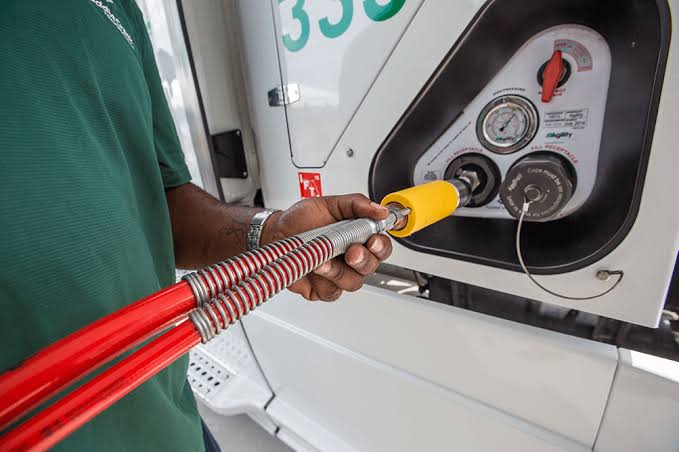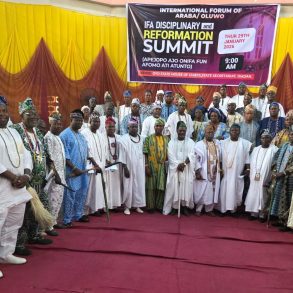The Federal government has asked oil marketers to commence the process of establishing Compressed Natural Gas points at their filling stations to increase consumer accessibility.
This is as the government concludes plans to ensure marketers open Compressed Natural Gas pumps in filling stations across the country.
Intending retail licences would now be required to establish a CNG point in their filling stations before getting final government approval.
The Chief Executive of the Nigerian Midstream and Downstream Petroleum Regulatory Authority, Farouk Ahmed, disclosed this at a meeting with key oil marketing companies in Abuja.
The discussion was to address the issues of incessant scarcity of petroleum products in the country and propose alternative solutions.
Ahmed also disclosed that a major conversation they had was in the area of Compressed Natural Gas initiative of the Federal Government.
He implored the major marketers to explore the availability of CNG in their gas stations as President Bola Tinubu had directed that government vehicles be purchased henceforth must be CNG powered.
Ahmed said new applications for retail licences would no longer be approved without CNG points.
Ahmed, who described the push by the Federal Government to encourage the use of CNG as an alternative to petrol as a revolution, said the government was determined to reduce the burden of petrol on the economy.
Speaking to journalists after the meeting, the chief executive stated that authority would not dictate the price band of the products, but assured that stop-gaps like the Dangote Refinery would bring succour to the local industry.
He said the Federal Government would not set the price of petroleum products from the Dangote refinery upon its full operation.
Ahmed stressed that though the government was encouraging local refining of petroleum products to reduce imports, it would not compel oil marketers to buy from Dangote Refinery as the decision was commercial.
The authority had recently stated that it would soon issue a fully valid operating licence to the 650,000 barrels per day capacity petroleum refinery.
The facility started releasing Automotive Gas Oil, popularly called diesel to the domestic market in April this year.
It has yet to release Premium Motor Spirit, popularly called petrol.
“There are concerns about the ability to import petroleum products especially diesel and aviation fuel and the advent of the Dangote refinery. We allayed the fears of the marketers and told them that the Dangote refinery is a major achievement in our country because the past we were importing every litre of petroleum products we required except those supplied by modular refineries. And as an oil-producing country, we believe at NMDPRA that we should support our local industry. And that is why we encourage our marketers to patronise our local refineries.
“But, at the same time, it is a commercial decision that they have to make between the suppliers and the clients. NMDPRA will not determine how much it is sold or how much you are buying. It is their own decision to go to Dangote refinery and purchase, and for Dangote refinery to determine the price they sell. As a regulator, we will not determine the price, we are only interested that the nation is well supplied”, he said.
On the recent shortage of petrol across the country, Farouk blamed it on the logistic problem faced by NNPC Limited in moving products from offshore to onshore depots.
He also hinted at plans to equip retail outlets and trucks with trackers to oversee product movement, dispensing, and volume accounting to obtain a precise estimate of our national consumption.
“We also talked about our national consumption, the requirement for our national consumption for petrol stations, retail outlets and trucking industries to put some trackers that monitor the movement of the product as well as the dispensing and accounting for the volume sold or transported so that we can have a very good estimate of our national consumption. Because currently what we do is rely on trucking information rather than the actual delivery into retail outlets or other consumption areas”, Ahmed said.
Speaking on behalf of the companies, the CEO, Matrix Energy, Mr Abdukabir Aliu said the companies were ready to support the government in its effort to increase energy sources for Nigerians.
“It is the country first and it is when you have a good country that the marketers will be able to operate and the consumers would be able to buy. I think the decision of the Federal Government supersedes all other decisions that we have. We are all in alignment with the decisions of the government and plead with Nigerians to be patient”, he stated.






